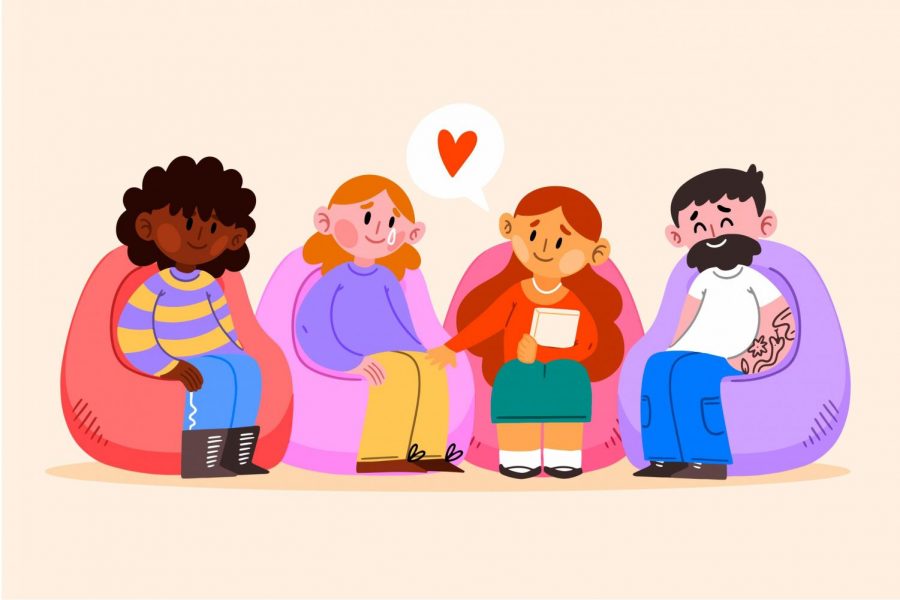College students suffer mentally due to COVID-19 pandemic
By pikisuperstar – www.freepik.com
Quarantine and isolation can weigh heavy on students’ minds. Join a virtual therapy group for licensed help and much needed social interaction.
November 5, 2020
Good mental health is important to help college students keep up with their daily lives on top of maintaining good grades in classes. Despite this, the COVID-19 pandemic has negatively impacted many students and their mental health, making it harder to adjust to life on campus.
A study from the Student Experience in the Research University at Berkley in California found through health questionnaires that undergraduate students are failing screenings for depression and anxiety at higher rates than ever.
At nine research universities, 30,725 students were screened and 35 percent of them were positive for major depressive order and 39 percent for anxiety disorder.
With the added COVID-19 guidelines and mandates put strictly in order at colleges such as Southeastern Oklahoma State University, students could be extremely affected in their daily lives and not realize it.
Destiny Riddle, who works at Student Wellness Services at Southeastern, stated, “I would say that college students in general are at risk because of the many changes that are occurring. College students are at risk for stress and anxiety in general, so adding a pandemic on top of that could possibly increase it,” Riddle added.
Kelly Davis, director of peer advocacy supports and services for Mental Health America, an organization that provides anyone with mental health issues services who need them, said there is usually a spike in mental health issues in October with students on campus not during a pandemic.
This could mean a dangerous drop in mental health for college students due to the circumstances of the pandemic.
Riddle declared that there are a few other reasons that there is a dip in mental health in the middle of the semester such as midterms, new classes and holidays.
The month of October also reminds students of breast cancer and domestic violence awareness. Shana Franklin, MBS, LPC and counselor at Southeastern, commented, “Both of these affect people in numerous ways and can bring powerful emotions to the surface.”
There are several resources at Southeastern available to students during this difficult time.
Individual, couples and group counseling is offered at Southeastern through Zoom. “Learn to Live” is a resource that offers coaching, free online programs and tools that can improve mental health.
If you or someone you know is struggling with mental health, text TALK to 741741 to reach a trained, licensed counselor through Crisis Text Line or call the Mental Health Emergency hotline in Oklahoma at 1-800-522-1090.
If you’re a student at Southeastern and are in need of help, call the Counseling Center at (580) 745-2988 for assistance on services offered, or if you have any questions.


